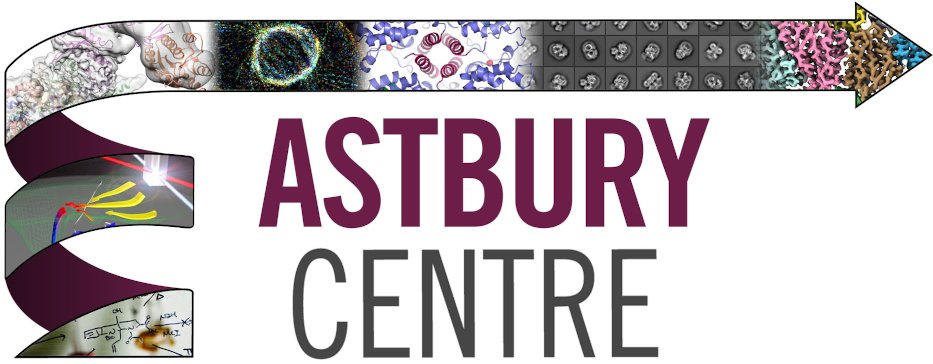Research

The Astbury Centre brings together structural molecular biologists, cell biologists, chemists and physicists who want to use the power of interdisciplinary science to understand the dynamic biological processes that underpin life. We are working to understand how the structure and function of a wide range of biological molecules (and the complexes they make) underpin the function of healthy cells and to understand what goes wrong in disease. The Astbury Centre specialises in all major techniques for high-resolution structure determination of large molecules, including cryo-electron microscopy, NMR spectroscopy, X-ray crystallography, as well as a battery of sophisticated biophysical tools such as mass spectrometry, confocal and super-resolution imaging, atomic force microscopy amongst many others.
Crucial to the mission of the Centre is to integrate the results of structural studies with powerful programmes of functional analysis, and further support our discoveries by theoretical analyses such as bioinformatics, molecular modelling and simulation. Our mission is therefore to use the power of modern integrated structural biology to drive new biological and biomedical discovery, and deliver on our ultimate aim: to understand life in molecular detail.
Research Themes
Our research themes address major impact-oriented challenges by drawing on the full breadth of our interdisciplinary capabilities. In each theme, there is a buoyant portfolio of research involving large numbers of PIs within the Centre that additionally draws on our partnerships with academic, clinical and industrial collaborators. The themes are part of broader remit of Astbury Centre which is to harness interdisciplinary approaches to understand life in molecular detail.
Research Capabilities
We harness the power of interdisciplinary science to unravel the molecular mechanisms that underpin life. We develop and harness a wide range of techniques, often in combination, to address major research questions. We have outstanding research capabilities in structural molecular biology, biophysics, chemical biology and molecular interactions in cells.
News
How a tumour suppressor repairs DNA
For the first time, scientists have witnessed new molecular behaviour in proteins that protect us from cancer. Scientists in the have identified new features of BRCA1–BARD1, a group of proteins that play a critical role in repairing damaged DNA. Using ground-breaking imaging techniques, thanks to the state-of-the-art equipment at the Astbury and Bragg centres in...
Scientists discover promising new way to personalise treatment for patients with cancer and autoimmune diseases
Researchers at the University of Leeds have developed a new diagnostic approach that can quickly identify how a patient is responding to antibody medication. The technology, which uses special sensors called enzyme switch sensors, can detect the amount of therapeutic monoclonal antibodies (TmAb) that are present in a patient’s system. TmAbs are medicines that are...
Britons getting tattoos and cosmetic procedures abroad may be at risk of Hepatitis C – here’s how to avoid it
Dr Grace Roberts, researcher in the School of Molecular and Cellular Biology, writes for The Conversation. A growing number of people living in the UK are going abroad to have tattoos, piercings and cosmetic surgeries. Any procedure, no matter where it’s performed, can carry the risk of injury and infection. But people heading abroad for cosmetic procedures...
